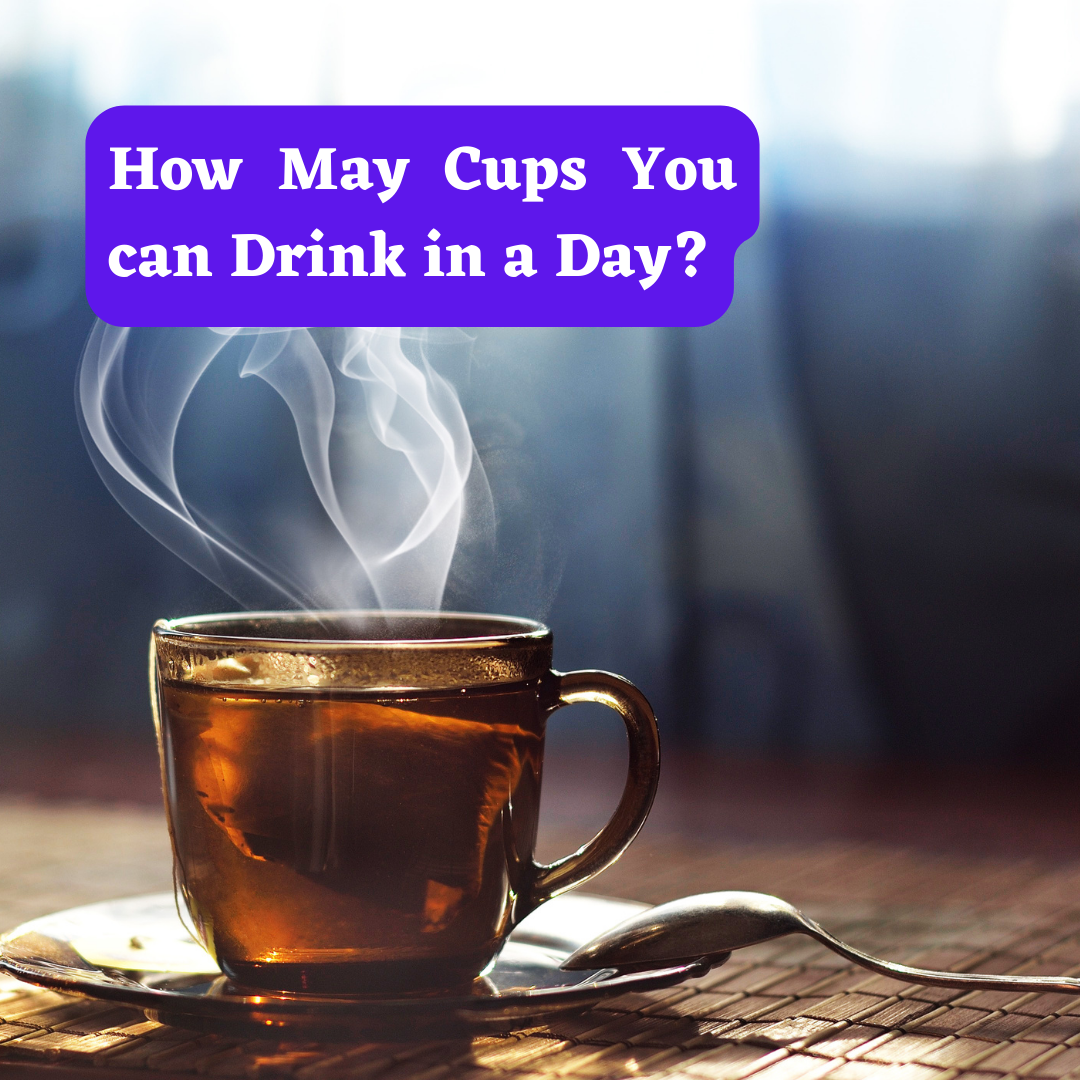When it comes to drinking tea, there are several factors that can affect the taste and quality of your brew. Poor quality ingredients, inadequate brewing techniques, and excessive consumption can all lead to a bad cup of tea. To ensure that you get the best flavor from your favorite beverage, it’s important to be aware of the signs of bad tea as well as some potential side effects associated with drinking too much tea.
One of the most obvious signs of bad tea is a sour smell or taste. If the leaves were stored improperly, they may have gone stale and developed an off flavor. Additionally, if the tea was brewed for too long or with too much water, it can become bitter and unpleasant to drink.
Contents
- 1 Identifying Bad Tea: What to Look For
- 2 The Difference Between Good Tea and Bad Tea
- 3 Side Effects of Drinking Too Much Tea
- 4 Conclusion:
- 5 FAQs
- 6 Q. How Bad Tea can Affect your Health?
- 7 Q. How can I ensure that the tea I am buying is of the highest quality?
- 8 Q. How much tea is too much?
- 9 Q. Are there any health benefits of drinking tea?
- 10 Q.Is milk tea bad for your health?
- 11 Q. How can you tell if tea is bad?
- 12 Q. What happens if you drink bad tea?
- 13 Q. How many cups of tea can kill you?
- 14 Q. Can you get food poisoning from bad tea?
- 15 Sources
Identifying Bad Tea: What to Look For
When selecting tea, it’s essential to pay attention to the quality of the leaves. Poorly-made teas will not only be unpleasant to drink but can also contain contaminants that can harm your health. Here are some things to look for when trying to identify bad tea:
• Visible Mold or Mildew: Mold and mildew can indicate that the tea is too old or was not stored properly. Moldy teas should be discarded immediately, as they are unsafe to consume.
• Off-Odor: Good tea should have a pleasant aroma, while bad tea will often have an unpleasant odor. Tea with a strong musty smell could be contaminated with bacteria and should be discarded.
• Discoloration: Tea with an unnatural color or texture could also be spoiled. If a tea’s leaves are discolored, chances are it is not fit for consumption.
• Insects or Bits of Dirt: When inspecting the tea leaves, you should look for any signs of insects or bits of dirt which could indicate that the tea has been contaminated.
• Unnatural Taste: As with scent, good tea should have a pleasant taste while bad tea will be overly bitter or sour. If the tea tastes odd in any way, it is probably not safe to drink and should be thrown away.
Finally, it’s important to make sure that the tea you are buying is fresh. Expiration dates should be checked before purchasing any tea to ensure you are getting a quality product. If stored correctly and consumed in a timely manner, good tea can provide an enjoyable experience while avoiding health risks. Taking the time to inspect your tea leaves and check expiration dates can save you a lot of trouble in the long run.
The Difference Between Good Tea and Bad Tea
Everyone loves tea – whether it’s an afternoon pick-me-up or a soothing evening beverage – but not all tea is equal. Some teas have far more flavor and complexity than others, while some just can’t compare. So what makes a good cup of tea?
Quality of Leaves
One of the most important factors in determining the quality of your tea is the quality of the leaves themselves. Good tea leaves should be plump, vibrant, and aromatic. They should also be free from any stems or dust particles, as these can affect the taste of your final brew. If the leaves are dry and brittle, then chances are that they won’t produce a flavorful cup of tea.
Brewing Process
The brewing process is also key in getting a quality cup of tea. For best results, you should always use freshly boiled water (not tap water) and steep your tea for the suggested amount of time (usually 3-5 minutes). Don’t be tempted to leave it steeping for too long as this will cause your tea to become bitter – no one wants a bitter cup! Additionally, make sure that you use enough loose leaf – approximately one teaspoon per 8 ounces of water is recommended. Using too little leaf will mean that your flavor will be weak.
Freshness
A less obvious factor in getting a good cup of tea is freshness. Teas can start to lose their flavor after being exposed to air for too long, so make sure that you buy your teas from reputable sellers who store them in airtight containers away from direct sunlight until they reach you. This way you can ensure that you’re always getting a flavorful brew each time!
Excessive consumption of tea can also be harmful to your health. Tea is high in caffeine and can cause unwanted side effects such as insomnia, jitteriness, headaches, irritability, and palpitations when consumed in large amounts. Moreover, some studies have found that consuming too much tea may increase the risk of certain types of cancer, so it is best to drink in moderation. It’s also important to note that some teas can contain harmful compounds such as fluoride which can be toxic if consumed in large amounts. To reduce your risk of health problems, always make sure that you are purchasing tea from a reputable source and consuming it in moderation.
Side Effects of Drinking Too Much Tea
With all of its amazing benefits, it’s easy to forget that drinking too much tea can have some unfavorable side effects.

Caffeine Overdose
One of the most common dangers of drinking too much tea is a caffeine overdose. As with any type of stimulant, excessive consumption can cause nausea, dizziness, and restlessness. Caffeine can also make it difficult to sleep, so you should consider cutting back if you’re finding that tea is interfering with your ability to get a good night’s rest.
Dehydration
Another potential side effect of too much tea drinking is dehydration. Tea is made up mostly of water, but the caffeine content can actually act as a diuretic, leading to excess water loss. If you’re drinking several cups of tea a day, make sure that you’re also replenishing with plenty of fresh filtered water.
Stomach Upsets
Finally, high levels of tannins in some types of tea can lead to stomach upset and indigestion. If you’re sensitive to tannins, try switching to a less intense type of tea or adding some milk or cream to your cup.
It’s important to remember that these side effects can be avoided by drinking tea in moderation. Most people don’t experience any adverse effects from drinking the occasional cup, but it’s important to be aware of the potential risks.
By taking these precautions and being mindful of your tea consumption, you can enjoy a good cup of tea with no worries!
Conclusion:
In conclusion, it is important to be aware of the signs that indicate bad tea as well as the potential side effects associated with drinking too much. By taking into consideration factors like quality of leaves, brewing process, and freshness when selecting a tea blend you can ensure a flavorful cup every time. Additionally, moderate consumption will help prevent unwanted health problems from occurring due to excessive caffeine or tannin intake. With these tips in mind, there’s no reason why you shouldn’t enjoy your favorite brew without worry!
FAQs
Q. How Bad Tea can Affect your Health?
A. Tea is generally considered safe to drink, however, excessive consumption can lead to unwanted side effects such as insomnia, jitteriness, headaches, irritability, and palpitations. Additionally, some studies have found that consuming too much tea may increase the risk of certain types of cancer, so it is best to drink in moderation.
Q. How can I ensure that the tea I am buying is of the highest quality?
A. When purchasing tea, it’s important to buy from a reputable seller who stores their teas in airtight containers away from direct sunlight until they reach you. This will help ensure that you are getting the freshest and highest-quality tea possible. Additionally, it’s a good idea to check the reviews and ratings of the vendor before making your purchase.
Q. How much tea is too much?
A. The recommended limit for caffeine consumption is 400mg per day, which equates to 4-5 cups of tea. However, this may vary depending on individual weight and sensitivity to caffeine. Therefore, it’s best to listen to your body and stop drinking tea if you start feeling any adverse effects.
Q. Are there any health benefits of drinking tea?
A. Yes, regular consumption of tea has been linked to numerous potential health benefits, including improved cardiovascular health and a reduced risk of certain types of cancer. Additionally, green tea has been found to contain antioxidant properties that can help reduce inflammation and boost the immune system.
Q.Is milk tea bad for your health?
A. As long as moderate amounts are consumed, milk tea should not be considered bad for your health. However, some people may experience adverse reactions to the caffeine or dairy content of milk tea, so it’s best to listen to your body and drink in moderation. Additionally, if you are lactose intolerant, be sure to select a non-dairy milk alternative for your tea.
Q. How can you tell if tea is bad?
A. You can tell if tea is bad by looking at the leaves, as well as smelling and tasting it. If the leaves are discolored or have a stale smell, then the tea may be spoiled and should not be consumed. Additionally, if the flavor of your tea has changed since when you first opened it, then it is likely that it has gone bad and should be discarded.
Q. What happens if you drink bad tea?
A. Drinking bad tea can have a variety of adverse effects, including nausea, headaches, and stomach discomfort. Additionally, in some cases, it may also lead to food poisoning if the tea has gone completely off. Therefore, it’s important to always make sure that your tea is fresh before drinking it.
Q. How many cups of tea can kill you?
A. Consuming too much tea can lead to an overdose of caffeine, which can cause serious health complications and even death in extreme cases. Therefore, it is best to drink no more than 4-5 cups of tea per day and always listen to your body for signs of adverse reactions.
Q. Can you get food poisoning from bad tea?
A. Yes, it is possible to get food poisoning from bad tea. If the tea has gone completely off, then it may contain harmful bacteria that can cause food poisoning if ingested. Therefore, it is important to always make sure that your tea is fresh before drinking it.

